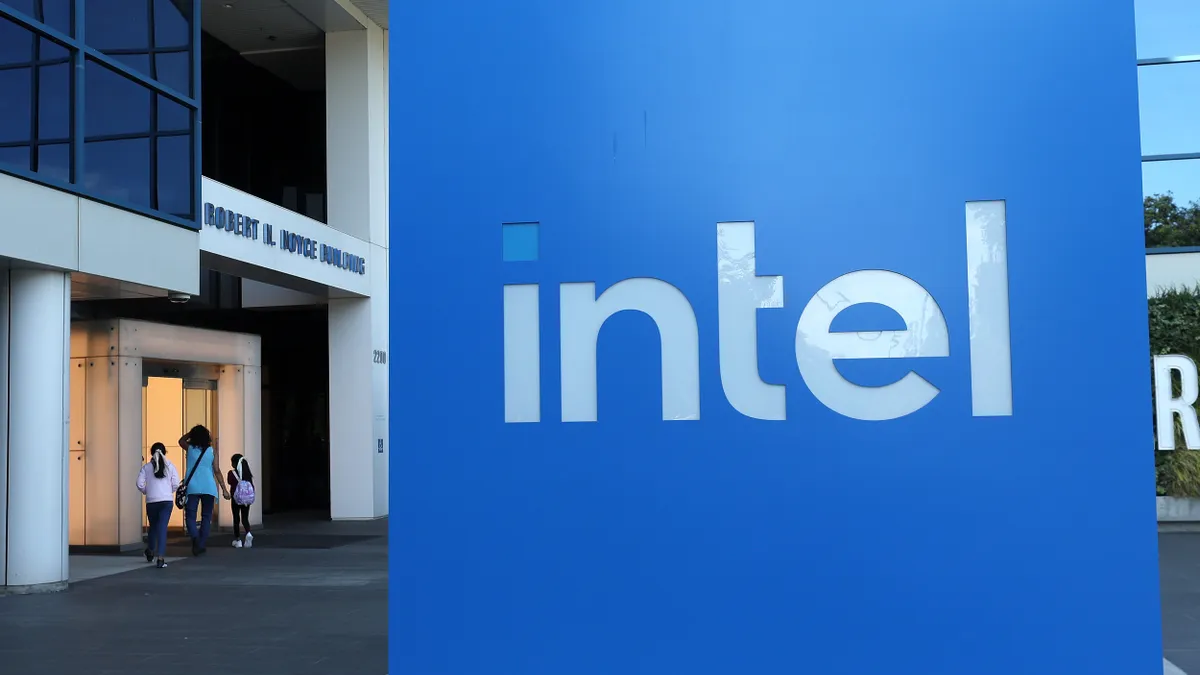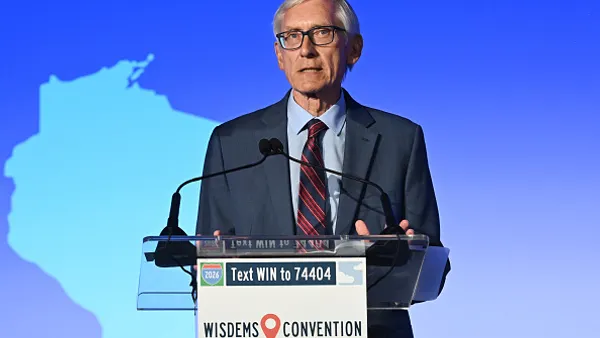Dive Brief:
- Intel Corporation shareholders are asking for the disgorgement of “all profits, benefits, and other compensation” obtained by ex-CEO Pat Gelsinger, CFO and current co-interim CEO David Zinsner and other company leadership, arguing the leaders breached their fiduciary and contractual duties, according to a shareholder derivative lawsuit filed Tuesday.
- Filed in the United States District Court of the Northern District of California, the suit by shareholder LR Trust on behalf of Intel alleges that both Gelsinger and Zinsner breached their fiduciary duties as officers of the company by issuing misleading disclosures and failing to accurately report financials related to the company’s foundry business. Gelsinger and Zinsner, as well as other named defendants, which include both current and past members of the company’s board, “exposed the Company to significant liability under various federal securities laws by their misconduct,” according to the suit.
- “As a result of the individual defendants’ breaches of fiduciary duty and other misconduct, Intel has sustained substantial damages and irreparable injury to its reputation,” the suit says, noting that the officers received “unjust enrichment” stemming from their misconduct.
Dive Insight:
The suit coincides with efforts by the chipmaker to regain the trust of its shareholders after it failed to execute a turnaround plan spearheaded by Gelsinger. A 40-year veteran of the Santa Clara, California-based company, Gelsinger abruptly resigned from his position as CEO and a member of the board effective Dec. 1 after the company reported a record quarterly loss of $16.6 billion for its third quarter, with losses related to the turnaround efforts, CFO Dive previously reported.
The company subsequently appointed Zinsner and Intel Products CEO Michelle Johnston Holthaus as co-interim CEOs, with Zinsner continuing to serve as CFO, as it continues to move forward with its restructuring efforts, targeting $10 billion in cost savings.
The restructuring, which also includes wide-scale layoffs throughout the business, is also widely focused on the company’s foundry business — a key element of the shareholder derivative suit.
Gelsinger’s turnaround plan included a shift in Intel’s foundry strategy, with the ex-CEO looking to spin off the unit into its own independent business with the goal of allowing Intel foundry to produce chips for its competitors, CFO Dive previously reported.
However, Gelsinger, Zinsner and other company leaders misled shareholders about the financial performance of the foundry unit, the suit alleges. Both officers pointed to the foundry unit as a “significant tailwind” for Intel’s business in various statements and company filings, including during the earnings report for the chipmaker’s full-year 2023 results, according to the suit.
However, in a retrospective revision to the company’s financials filed in April, the chipmaker revealed Intel Foundry to be one of its main cost centers — with the division losing $7 billion in 2023, according to the filing with the Securities and Exchange Commission. The recast sent Intel’s shares spiraling down by 9.2% at the time, according to the suit. The news was also followed by a class action suit alleging shareholders were mislead regarding those losses related to its Foundry business, according to a report at the time by The Register.
As a result, the chipmaker “has been and will continue to be exposed to significant losses due to the wrongdoing complained of herein, yet the board has not caused the company to take action to recover for the company the damages it has suffered and will continue to suffer thereby,” the December shareholder derivative suit alleges.
As well as Zinsner and Gelsinger, the suit named multiple current and former board members as defendants. Other defendants include Lip-Bu Tan, a former member of the board who abruptly stepped down from his position in August due to concerns related to Gelsinger’s turnaround plan, according to a report at the time by Reuters cited by the suit.
The semiconductor manufacturer has remained focused on its foundry business following its leadership shift. Intel is still seeking to be a “world-class foundry,” Zinsner said during a conference a few days after his appointment to co-interim CEO. As such, it’s also likely Gelsinger’s permanent successor as CEO will have “some capability” around foundry, he said at the time.
Intel declined to comment on the suit. Weiss Law, the attorneys for the plaintiffs, did not immediately respond to requests for comment.
















